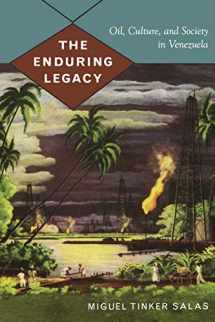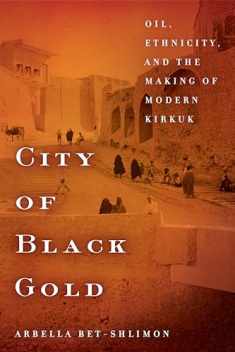
The Enduring Legacy: Oil, Culture, and Society in Venezuela (American Encounters/Global Interactions)
Book details
Summary
Description
Oil has played a major role in Venezuela’s economy since the first gusher was discovered along Lake Maracaibo in 1922. As Miguel Tinker Salas demonstrates, oil has also transformed the country’s social, cultural, and political landscapes. In The Enduring Legacy, Tinker Salas traces the history of the oil industry’s rise in Venezuela from the beginning of the twentieth century, paying particular attention to the experiences and perceptions of industry employees, both foreign and Venezuelan. He reveals how class ambitions and corporate interests combined to reshape many Venezuelans’ ideas of citizenship. Middle-class Venezuelans embraced the oil industry from the start, anticipating that it would transform the country by introducing modern technology, sparking economic development, and breaking the landed elites’ stranglehold. Eventually Venezuelan employees of the industry found that their benefits, including relatively high salaries, fueled loyalty to the oil companies. That loyalty sometimes trumped allegiance to the nation-state.
North American and British petroleum companies, seeking to maintain their stakes in Venezuela, promoted the idea that their interests were synonymous with national development. They set up oil camps—residential communities to house their workers—that brought Venezuelan employees together with workers from the United States and Britain, and eventually with Chinese, West Indian, and Mexican migrants as well. Through the camps, the companies offered not just housing but also schooling, leisure activities, and acculturation into a structured, corporate way of life. Tinker Salas contends that these practices shaped the heart and soul of generations of Venezuelans whom the industry provided with access to a middle-class lifestyle. His interest in how oil suffused the consciousness of Venezuela is personal: Tinker Salas was born and raised in one of its oil camps.


We would LOVE it if you could help us and other readers by reviewing the book
Book review





